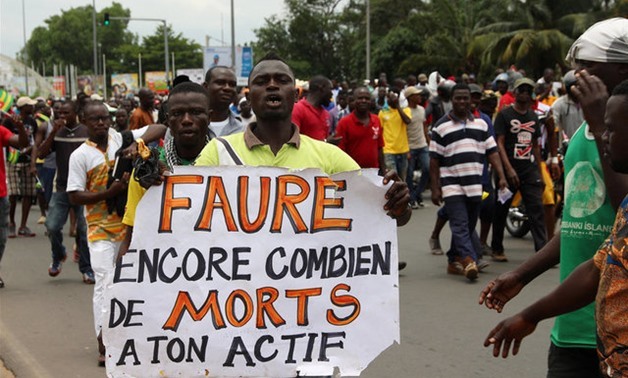
A protester in a West African country- file photo
Libreville, Sept 14, 2017: Gabon is considering an amnesty for people involved in last year's deadly post-electoral violence, Prime Minister Emmanuel Issoze Ngondet said Wednesday.
President Ali Bongo's re-election in August 2016, by just a few thousand votes, led opposition leader Jean Ping to accuse the administration of electoral fraud.
Violence broke out days after the vote, and opposition figures say more than 50 people were killed in clashes. The official toll was only three dead.
"Gabon's head of state Ali Bongo Ondimba has asked us to consider an amnesty law which would deal on a case-by-case basis with some situations involving people who were guilty" of violence following last year's election, Issoze Ngondet told reporters.
The announcement that Bongo had been re-elected prompted unprecedented violence in Gabon, including the National Assembly building being set alight, security forces storming Ping's HQ and the arrest of hundreds.
A national commission will be set up to look into the violence, the prime minister said, adding that there was no need for any action from the international community.
"We don't need to have, alongside this national action, any initiative coming from the international community, he said.
Bongo took over power from his father Omar Bongo, who ruled for 41 years until his death in 2009. His second mandate has received a cool reception from the African Union, EU and United Nations.
Gabon has large oil, mineral and tropical timber resources, and its per-capita national income is four times greater than that of most sub-Saharan nations.
But about a third of its population of 1.8 million still live below the poverty line -- the result, say specialists, of inequality, poor governance and corruption.
Comments
Leave a Comment